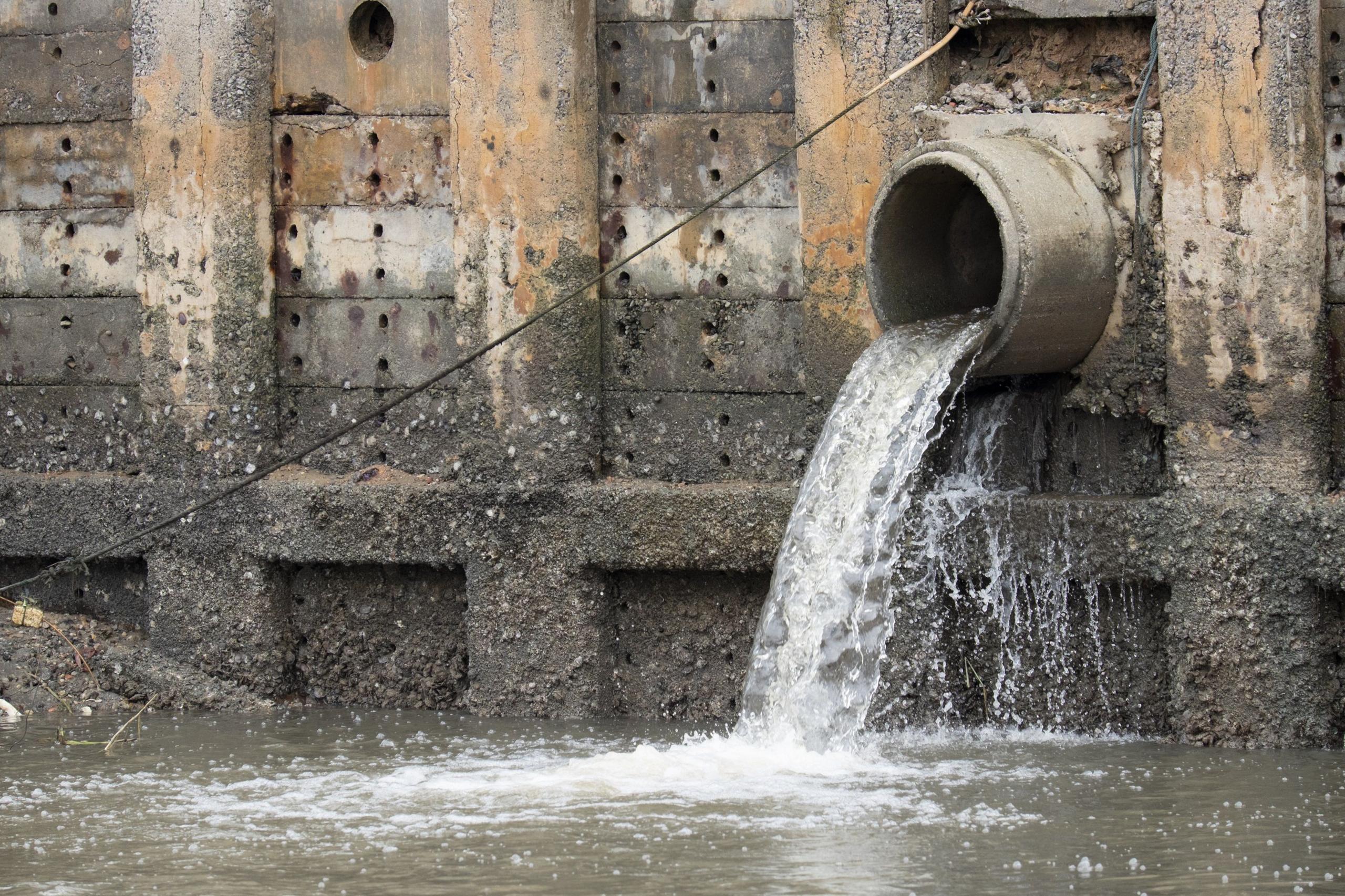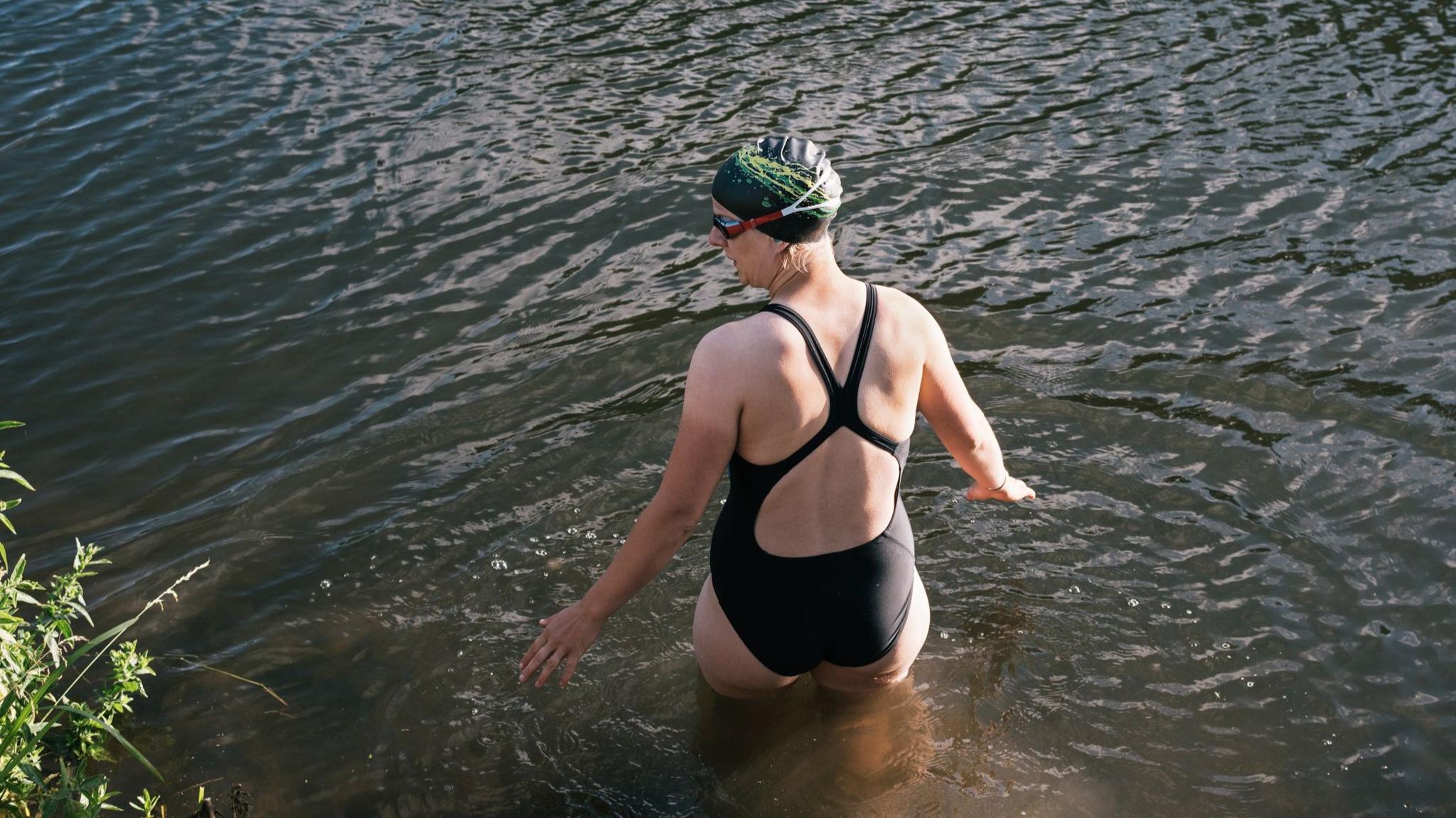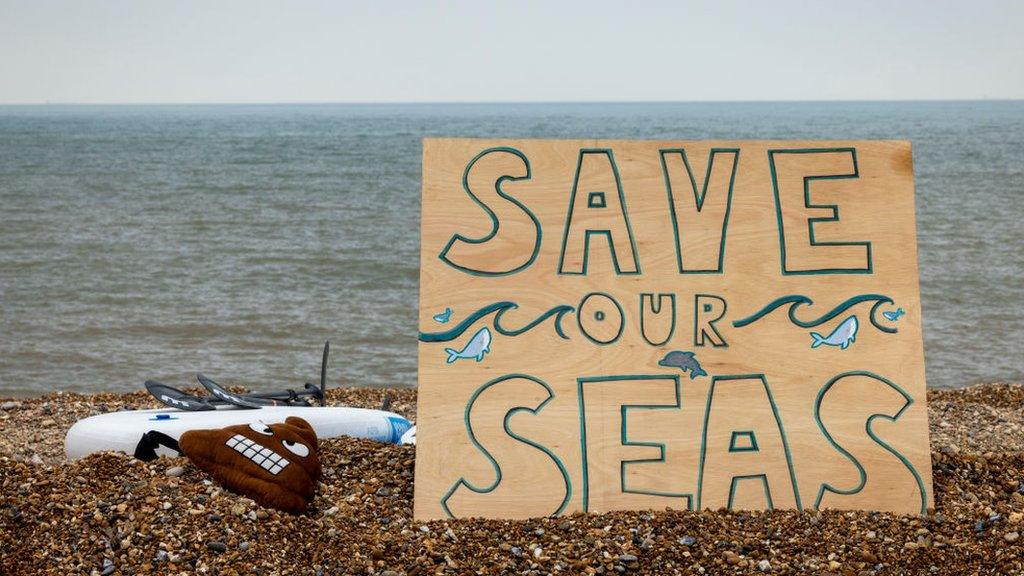More than 100 chemicals polluting harbours - study

Environment Agency data showed raw sewage was released into England's rivers and seas for a record 3,610,000 hours in 2024
- Published
Researchers have found more than 100 unique chemical pollutants in two UK harbours, raising concerns about their impact on wildlife.
An analysis of seawater, seaweed and shellfish from Langstone and Chichester harbours found chemical pollutants surged more than 100-fold after sewage discharges.
Scientists found 105 unique pharmaceuticals, pesticides and illegal drugs.
Last week Environment Agency data showed raw sewage was released into England's rivers and seas for a record 3,610,000 hours in 2024.
The researchers were from Brunel University of London, the University of Portsmouth and Imperial College London, working with citizen scientists from the Clean Harbours Partnership.
Their study took 339 samples from 21 spots in the harbours, both Sites of Special Scientific Interest, during the spring and autumn of 2022.
Contaminants can slip through some wastewater treatment plants throughout the year but the autumn sampling coincided with rainy days, which caused combined sewer overflows (CSOs), external to drive sewage into surface waters.

Some of the study's samples were taken from Langstone Harbour
"CSO discharges were an obvious source of chemical pollution in these waters," said Dr Thomas Miller from Brunel University of London, who led the study.
"Our study found that some chemicals increased by over 100-fold in water after these discharges, making them a high risk to aquatic wildlife."
An insecticide regularly used on domestic pets in flea and tick medication, Imidacloprid, was the highest risk based on levels found in surface water.
"Out of so many chemicals detected, the presence of pet tick and flea treatments in the harbours was especially concerning," said Dr Leon Barron, from Imperial College London.
"We urgently need to reassess the practice of blanket preventative treatment of our dogs and cats to help bring the risk down."
The team's work will be published in the journal Environment International on Monday.
Prof Alex Ford, from the University of Portsmouth, added: "The impact of these contaminants we are yet to fully understand, but it's clear from our data that they increase substantially under storm events which discharge untreated sewage."
A Defra spokesperson said: "This government is committed to tackling all sources of pollution to clean up our rivers, lakes and seas.
"That's why we have announced the first action plan on pesticides in a decade and banned the use of harmful neonic pesticides to protect the environment and human health.
"We're also carrying out a full review of the water sector to shape further legislation that will transform how our water system works and speed up infrastructure delivery."
Get in touch
Do you have a story BBC Hampshire & Isle of Wight should cover?
You can follow BBC Hampshire & Isle of Wight on Facebook, external, X (Twitter), external, or Instagram, external.
- Published27 March

- Published17 December 2024

